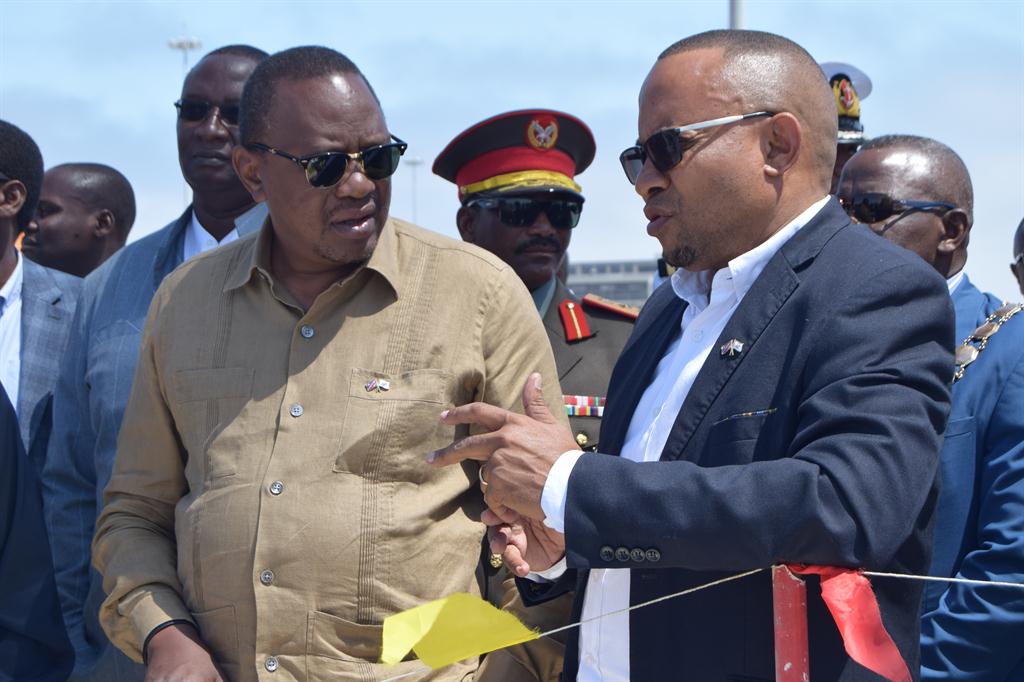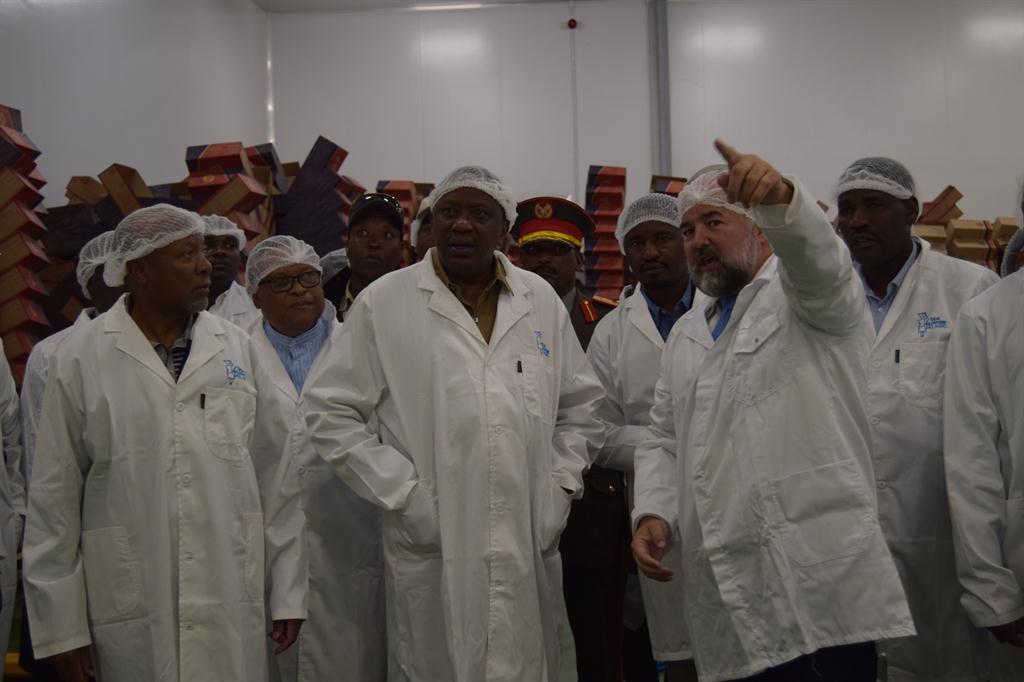Kenyan president visits Walvis Bay
LEANDREA LOUW - Kenyan President Uhuru Kenyatta visited the Namibia Ports Authority and the Seaflower Pelagic Fish Processing plant in Walvis Bay last week.
Kenyatta who was on a state visit to Namibia, also joined the 29th independence celebrations at the invitation of President Hage Geingob.
Namport CEO Bisey /Uirab said the two countries had a long and beneficial relationship, dating back to before Namibia’s independence.
He further reiterated that countries need to tap into the so-called blue economy.
“As African nations we should become beneficiaries of our own fishing resources and not allow foreign nations to steal and plunder from us.
“As African ports we need to work together, so that we can be equally efficient and constantly seek to enhance our collaboration.”
Uhuru congratulated Namport on its achievements and called for increased intra-African cooperation.
“Africa will not succeed as individual countries, but if we are to succeed we should only do so as a collective. We have a greater responsibility, not just towards our own citizens but there are many other who depend on our efficiency and our effectiveness,” he said.
He was taken on the tour of the port’s container terminal, which was built on reclaimed land. Namport hopes to commission the terminal in August this year.
Regional giant
The Seaflower Pelagic Plant is the largest land-based fish-processing facility in Sub-Saharan Africa, with a processing capacity of 600 tonnes of horse mackerel per day.
A total of 434 onshore and 12 offshore jobs have been created in the Seaflower freezing plant, cannery, fishmeal plant and the two Namibian-flagged vessels that harvest fish for the factory. By the time the factory is in full production, over 700 jobs will have been created.
In his remarks, the minister of fisheries and marine resources, Bernard Esau, said providing food security was the essence of the fish industry.
“We want to provide fish to our local entrepreneurs to trade with, by drying and processing the fish, and through this create necessary jobs.
“This facility was built by local skills and expertise. In November last year I attended the Blue Economy Conference in Kenya, and the aim was to encourage global action to utilize the resources in a sustainable way.
“At that very conference, we interrogated the irregular and unreported fishing. I believe that is an area where Namibia and Kenya can collaborate.
“All we need to do now is give meaning to the commitments we made in Kenya concerning our marine resources. Come 2020, we will report on our commitments at the UN Oceans conference in Portugal,” Esau said.
Kenyatta who was on a state visit to Namibia, also joined the 29th independence celebrations at the invitation of President Hage Geingob.
Namport CEO Bisey /Uirab said the two countries had a long and beneficial relationship, dating back to before Namibia’s independence.
He further reiterated that countries need to tap into the so-called blue economy.
“As African nations we should become beneficiaries of our own fishing resources and not allow foreign nations to steal and plunder from us.
“As African ports we need to work together, so that we can be equally efficient and constantly seek to enhance our collaboration.”
Uhuru congratulated Namport on its achievements and called for increased intra-African cooperation.
“Africa will not succeed as individual countries, but if we are to succeed we should only do so as a collective. We have a greater responsibility, not just towards our own citizens but there are many other who depend on our efficiency and our effectiveness,” he said.
He was taken on the tour of the port’s container terminal, which was built on reclaimed land. Namport hopes to commission the terminal in August this year.
Regional giant
The Seaflower Pelagic Plant is the largest land-based fish-processing facility in Sub-Saharan Africa, with a processing capacity of 600 tonnes of horse mackerel per day.
A total of 434 onshore and 12 offshore jobs have been created in the Seaflower freezing plant, cannery, fishmeal plant and the two Namibian-flagged vessels that harvest fish for the factory. By the time the factory is in full production, over 700 jobs will have been created.
In his remarks, the minister of fisheries and marine resources, Bernard Esau, said providing food security was the essence of the fish industry.
“We want to provide fish to our local entrepreneurs to trade with, by drying and processing the fish, and through this create necessary jobs.
“This facility was built by local skills and expertise. In November last year I attended the Blue Economy Conference in Kenya, and the aim was to encourage global action to utilize the resources in a sustainable way.
“At that very conference, we interrogated the irregular and unreported fishing. I believe that is an area where Namibia and Kenya can collaborate.
“All we need to do now is give meaning to the commitments we made in Kenya concerning our marine resources. Come 2020, we will report on our commitments at the UN Oceans conference in Portugal,” Esau said.






Comments
Namibian Sun
No comments have been left on this article